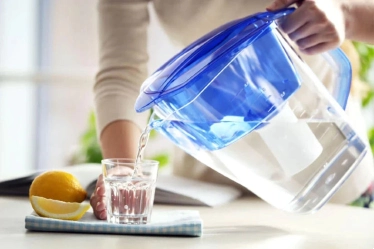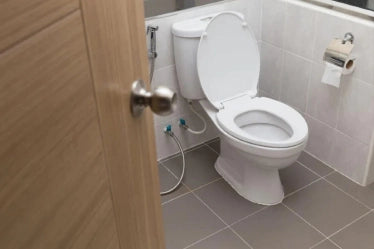Constipation is one of the most common digestive problems in the United States, and there are so many causes that it can be difficult to find a simple solution. In fact, 16% of American adults deal with constipation. Many of these natural remedies should help to improve your health significantly. A bonus of these all-natural strategies is that they're going to be safer for you than over-the-counter medicines and stool softeners for constipation. These short-term fixes can have unwanted side effects, like stomach cramps, nausea, and throat irritation. So, go au naturel!
Constipation is never a pleasant experience. Gas pains, bloating, infrequent stools… the list goes on and on. But, it doesn't have to be that way. Softening your stool with natural strategies can do wonders for your digestive health.
Constipation
What is constipation? Constipation, cited as a symptom of other medical conditions, is characterized by the following parameters:
- Infrequent bowel movements (less than three per week)
- Stools with poor texture
- Difficulty or pain with bowel movements
- Feeling of incompletion after a bowel movement
Unfortunately, certain people are predisposed to constipation. As many as 33% of American adults over 60 suffer from such discomfort. Women (especially throughout and after pregnancy), non-Caucasian people, those that are on certain medications, and those with gastrointestinal disorders.
While over-the-counter medications can offer short-term relief, they are rarely an effective, long-term solution to constipation. Natural stool softeners may be a better option.
Natural Stool Softeners
Fiber
On average, Americans eat less than half of their daily recommended fiber intake. For adults under 50, women and men should get 25 and 38 grams of fiber, respectively. To put this in perspective, a single apple contains 4.4 grams of fiber. This works out to almost 9 apples a day for men! The part of plant-based food that does not get digested, fiber provides bulk to stool and ensures that it moves with grace and speed through the digestive tract. Fear not, there are plenty of sneaky sources of fiber to include in your diet to boost your intake. Try out some high-fiber cereal, dried beans and peas, nuts, seeds, berries, and other fruits and vegetables like cauliflower, broccoli, and carrots. In general, whole, unprocessed foods are your friend
Drinking plenty of water
How does stool develop a poor texture? As it moves through the colon, it absorbs water (making it solid). When the colon is too sluggish, the stool-forming process is also slow, and the waste absorbs too much water. Staying hydrated is a way to ensure that everything is running smoothly.


Physical Activity
Research suggests that physical activity, like walking, can provide some relief for those with constipation. However, more studies need to be done to confirm the potential feasibility of exercise as a natural stool softener outside elderly, institutionalized, or hospitalized demographics. With more evidence, scientists will be able to apply this observation to the average young person struggling with constipation. How does this work? Your abdominal muscles play a part in the process. If they're strong, they'll work in your favor and move the process along.


Bowel Routine
Healthcare professionals recommend that once you find a bowel movement regimen that works for you, consistency is key. This routine can prevent constipation and potentially alleviate the discomfort that comes with it. Most important? If your body sends you signals indicating a bowel movement, listen to it.


Probiotics
Probiotics are the friendly microbes in our gut. A probiotic supplement provides your microbiome with live organisms to support the bustling ecosystem within your gut. While the research on probiotics as a possible treatment for constipation is still developing, some studies indicate that this natural stool softening strategy might have some promise. Scientists found that probiotics, especially Bifidobacterium lactis, may be able to improve stool's transit time, frequency, and consistency.

None of the above strategies are clicking for you? It may be worth a look at your lifestyle choices. A diet of little or no fiber can contribute to frequent constipation. Foods like chips, fast food, meat, some frozen/microwavable meals, and processed snack foods are typical low-fiber culprits. Also possibly in need of attention? Your gut microbiome. Find out with Floré.
